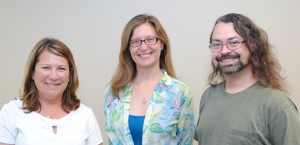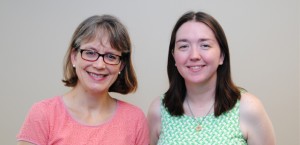BOLD Fellows Program
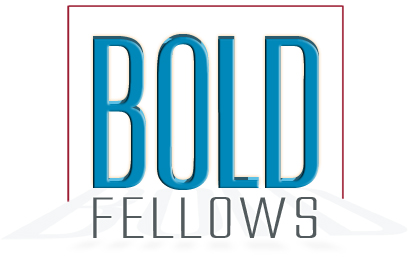
The Blended & Online Learning Design
(BOLD) Fellows Program
.
.
The Blended & Online Learning Design (BOLD) Fellows Program is designed to help graduate student/faculty teams build expertise in developing online instructional materials grounded in good course design principles and our understanding of how people learn. Faculty members partner with graduate students to design and develop online instructional materials to solve a teaching “problem” in one of their courses. The teams implement the materials in an existing class and investigate their impact on student learning. Examples of projects can be seen in the BOLD Gallery.
The program grew out of a partnership between CIRTL and the CFT and embodies several of their core ideas, notably the importance of using teaching practices supported by research and investigating the impact of teaching choices on student learning. The program helps graduate students and faculty members solidify their understanding of course design processes, investigate their pedagogical choices, and consider their application to online learning, while simultaneously creating products that can directly benefit students in targeted classes. The CFT has also created a website to support BOLD Fellows in developing their online instructional modules, as well as anyone interested in blended and online learning. While the program initially included only teams from STEM disciplines, teams from all disciplines are now encouraged to apply. All VU-employed (Provost-reporting) faculty are eligible.
.
Program structure
BOLD Fellows will be guided through the design and construction of their module during the “design and development” semester. This semester includes sessions on establishing learning objectives; creating assessments; designing activities; presenting content; and seeking IRB approval. During this semester, Fellows meet regularly as a cohort and consult with their faculty partner frequently about design decisions. During the “implementation and assessment” semester, Fellows, faculty mentors, and CFT staff meet as needed to discuss results from assessment of the modules.
\
2019-2020 BOLD Fellow Teams
2018-2019 BOLD Fellow Teams
|
|
|
|
|
|
|
|
|
|
2017-2018 BOLD Fellow Teams
|
|
|
|
|
|
|
2016 BOLD Fellow Teams
|
 L to R: Kristin Droege, Chemistry, working with Cynthia Brame, Senior Lecturer in Biological Sciences; Brandt Eichman, Professor of Biological Sciences; Lauren Jackson, Assistant Professor of Biological Sciences; and Charles Singleton, Professor of Biological Sciences
L to R: Kristin Droege, Chemistry, working with Cynthia Brame, Senior Lecturer in Biological Sciences; Brandt Eichman, Professor of Biological Sciences; Lauren Jackson, Assistant Professor of Biological Sciences; and Charles Singleton, Professor of Biological Sciences
2015-16 BOLD Fellow Teams
|
|
|
|
|
|
2014-15 BOLD Fellow Teams
|
|
|

Samantha Tramontano, Earth & Environmental Science, working with Guilherme Gualda, Associate Professor, and Lily Claiborne, Sr. Lecturer of Earth & Environmental Science |
|
|
|
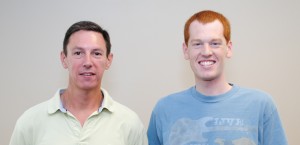
Tyler McCleery, Physics, working with Shane Hutson, Associate Professor of Physics |
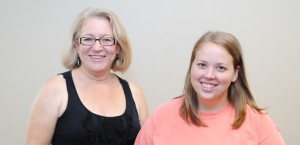
Emilianne McCranie, Chemistry, working with Michelle Sulikowski,Senior Lecturer in Chemistry |
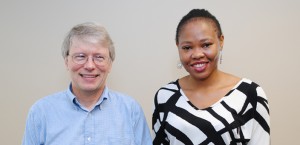
Udo Obodo, Biological Sciences, working with Steve Baskauf, Senior Lecturer in Biological Sciences |
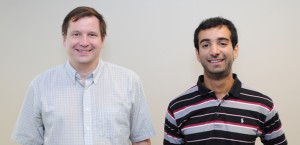
Faizan Zubair, Chemical Engineering, working with Paul Laibinis, Professor of Chemical and Biomolecular Engineering |
2013-14 BOLD Fellow Teams
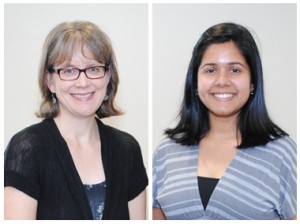
Katherine Friedman, Associate Professor of Biological Sciences, working with Tessy Sebastian. |
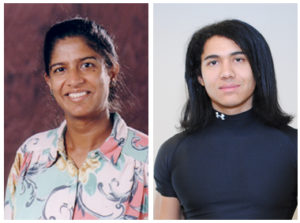
Anita Mahadevan-Jansen, Professor of Biomedical Engineering and Neurosurgery, working with Zane Ricks. |
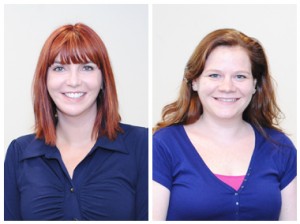
Kelly Holley-Bockelmann, Assistant Professor of Astronomy, working with Lauren Campbell. |
Advisers
Cynthia Brame, CFT Associate Director
Rhett McDaniel, CFT Educational Technologist
Frequently asked questions
How extensive are the instructional materials Fellows create?
Typically, the learning modules that BOLD Fellows create are equivalent to 1-3 class days. Because graduate students are completing this work in addition to their other work—their dissertation research and any other responsibilities they have—we encourage Fellows and their faculty mentors to focus their attention on one particular topic or concept for which blended or online instruction may provide benefits.
What do the learning modules that BOLD Fellows create look like?
To date, all of the modules that the BOLD Fellows have created are intended to be used for blended instruction—that is, the online materials are meant to complement face-to-face interactions. The online materials often include some video content and some form of formative assessment to help students evaluate their own understanding. The videos the Fellows have created vary, ranging from Khan-academy style tutorials, to animations with verbal descriptions, to interviews and staged arguments. The formative assessments BOLD Fellows have used within their modules have also varied, ranging from in-video and post-video multiple choice questions to short writing assignments to simulations. Completely different projects are also encouraged, however!
What role does the faculty mentor play?
The faculty mentor for each BOLD Fellow plays an essential role. Typically, the faculty mentor has identified a “problem” in a class that s/he is teaching –such as low student engagement or difficulty with a particular concept—that may be addressed through the development of a blended or online learning module. The faculty mentor has the content knowledge necessary for developing the module (although ideally the Fellow does as well), and has a deep understanding of the particular course context—that is, the challenges that face students in this class at this institution. These elements are essential for developing an effective module. Furthermore, the faculty mentor has to want to implement the module in his or her class and has to be willing to collect data on its effectiveness. Thus the program is best seen as a partnership between the Fellows and their faculty mentors.
What are some of the principles that guide the development of the learning modules?
We encourage the BOLD Fellows to consider what we know about principles of learning and how those principles can be implemented effectively in an online setting. How People Learn and How Learning Works are great summaries of the principles of learning. The CFT’s teaching guide on Blended and Online Learning summarizes knowledge about how to implement these principles in an online setting.
How much money accompanies a BOLD Fellowship?
Currently, the Fellowship is accompanied by $1000. It also offers the opportunity to apply for $500 for travel money to support presentation of the BOLD project.
How much time should BOLD Fellows expect to spend on their project?
During the first semester, the group meets weekly for 1.5 hours to guide Fellows through the design and development of their modules. Fellows will also need to discuss the design of their module regularly with their faculty mentor. Finally, they will need to set time aside to build the module. The amount of time to build the module varies significantly, depending on the size and sophistication of the module, the Fellow’s existing knowledge about the subject matter targeted in the module, and the Fellow’s comfort with the technology s/he wants to use. Finally, we ask that the BOLD Fellows present their work to a local audience at the end of the year. Time management and project management skills also have a significant impact on the time that Fellows spend on the project. When designing a project, we encourage Fellows and their mentors to consider the time they have to devote and then to choose a project that can fit within that time.
What aid does the CFT offer?
The CFT offers guidance to the Fellows in considering principles of learning and how to apply them to their modules and guidance on the design on the modules. We also introduce Fellows to some of the tools available to create online content and training on how to use some of those tools. Finally, we help Fellows and their mentors through the IRB application process.
It’s also important to note the limits to the help we can provide. The Fellows are the creators of the modules; although we can help Fellows identify and learn to use tools for creating online content, we do not create the content ourselves. We also have limits to the tools we can help Fellows use; there are no programmers or computer scientists on staff at the CFT, and thus we can’t help Fellows develop applications that require programming skills.

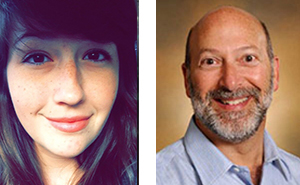
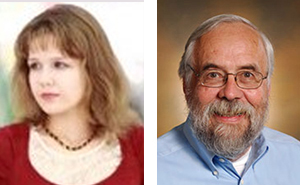
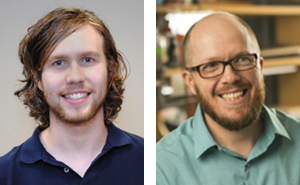
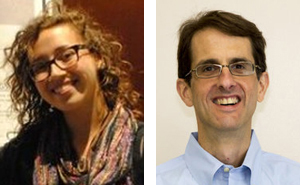
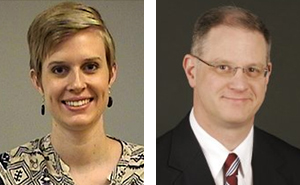
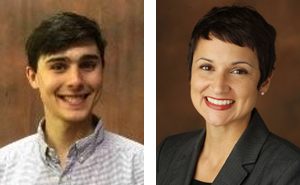

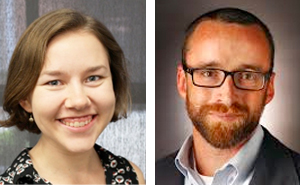
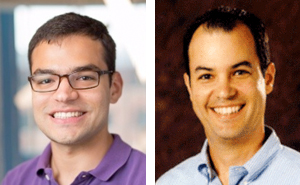
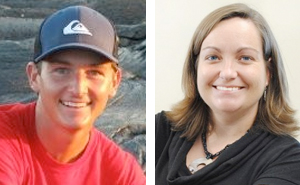 Blake Wallrich, working with
Blake Wallrich, working with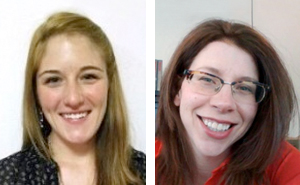 Chelsey Dyer working with
Chelsey Dyer working with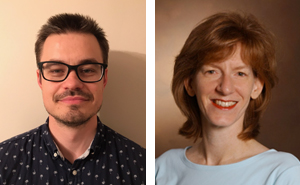 Ian Morton working with
Ian Morton working with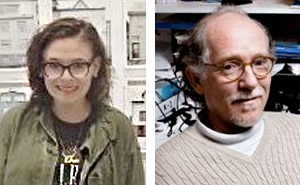 Pietra Bruni working with
Pietra Bruni working with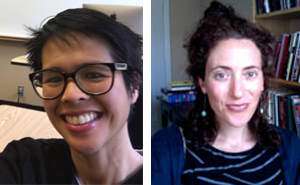 Janine Christiano
Janine Christiano 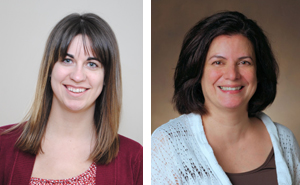 Natalie Covington working with
Natalie Covington working with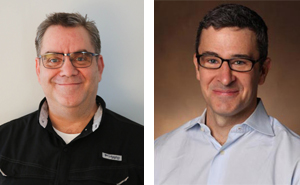 Jacques Morin working with
Jacques Morin working with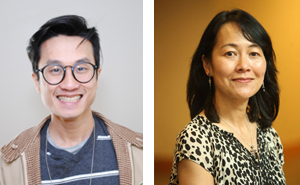 Lam Pham working with
Lam Pham working with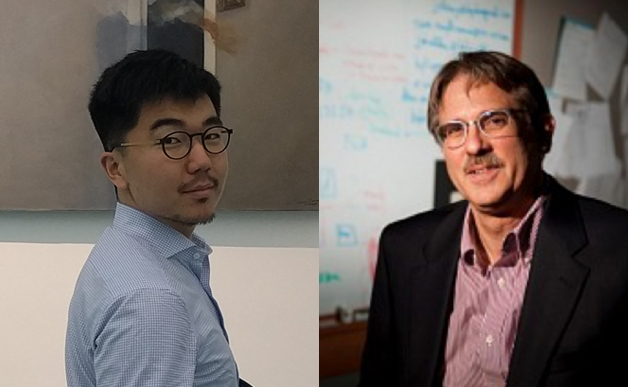
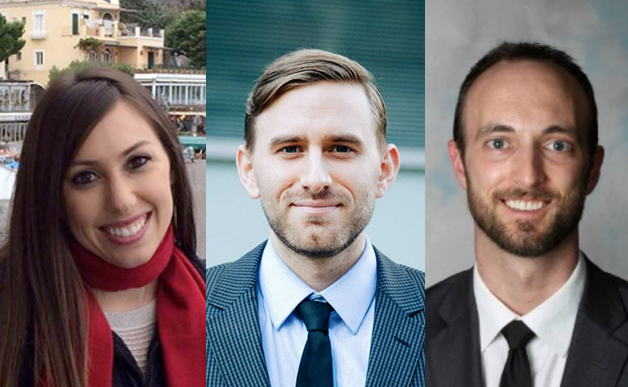
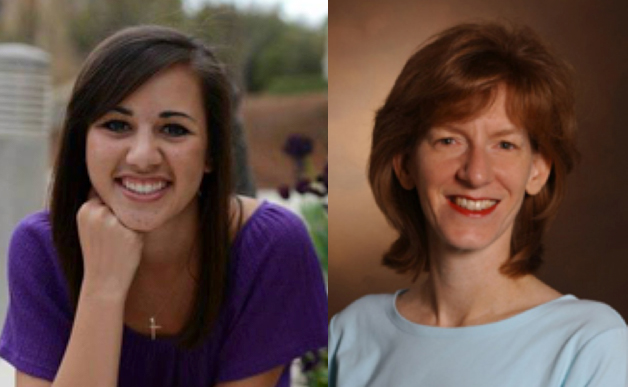
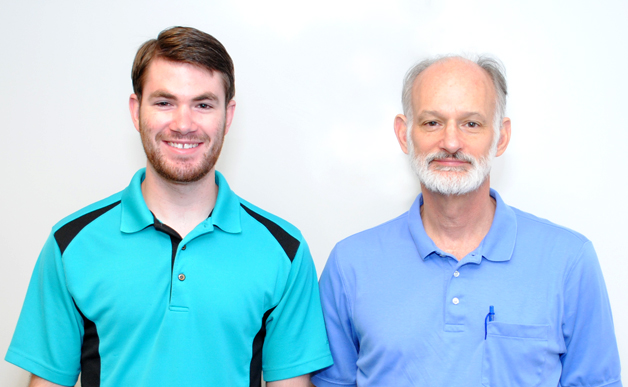 Jason Eggold working with
Jason Eggold working with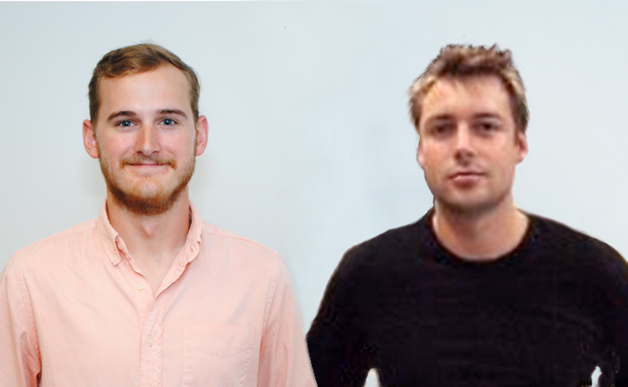 Brandt Gibson working with
Brandt Gibson working with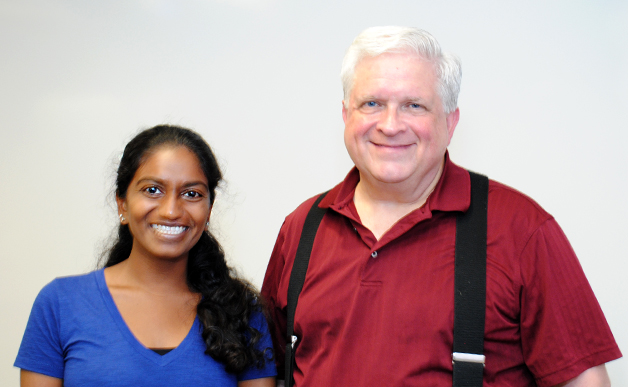 Sandya Lakkur working with
Sandya Lakkur working with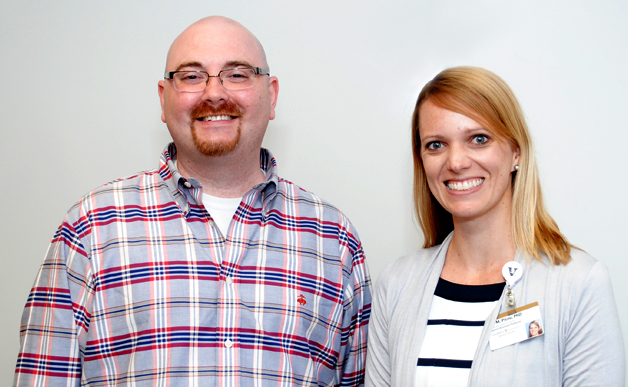 Travis Moore working with
Travis Moore working with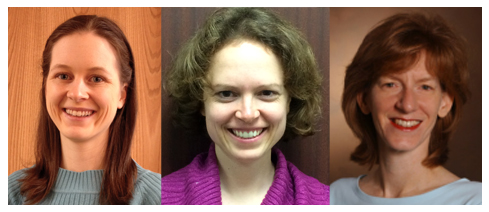 L to R: Jena McDaniel and Laurel Teller, Hearing & Speech Sciences,
L to R: Jena McDaniel and Laurel Teller, Hearing & Speech Sciences,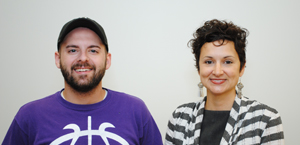
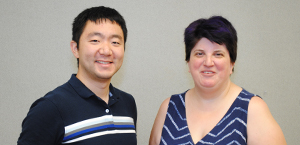
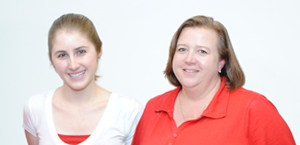


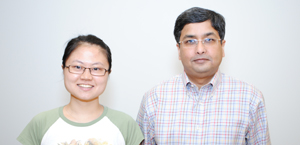
 Noah Green, Biological Sciences, working with Douglas McMahon, Professor of Biological Sciences
Noah Green, Biological Sciences, working with Douglas McMahon, Professor of Biological Sciences Hannah Krimm, Hearing & Speech Sciences, working with Melanie Schuele, Associate Professor of Hearing & Speech Sciences
Hannah Krimm, Hearing & Speech Sciences, working with Melanie Schuele, Associate Professor of Hearing & Speech Sciences Thomas Struble, Chemistry, working with Jeffrey Johnston, Professor of Chemistry
Thomas Struble, Chemistry, working with Jeffrey Johnston, Professor of Chemistry